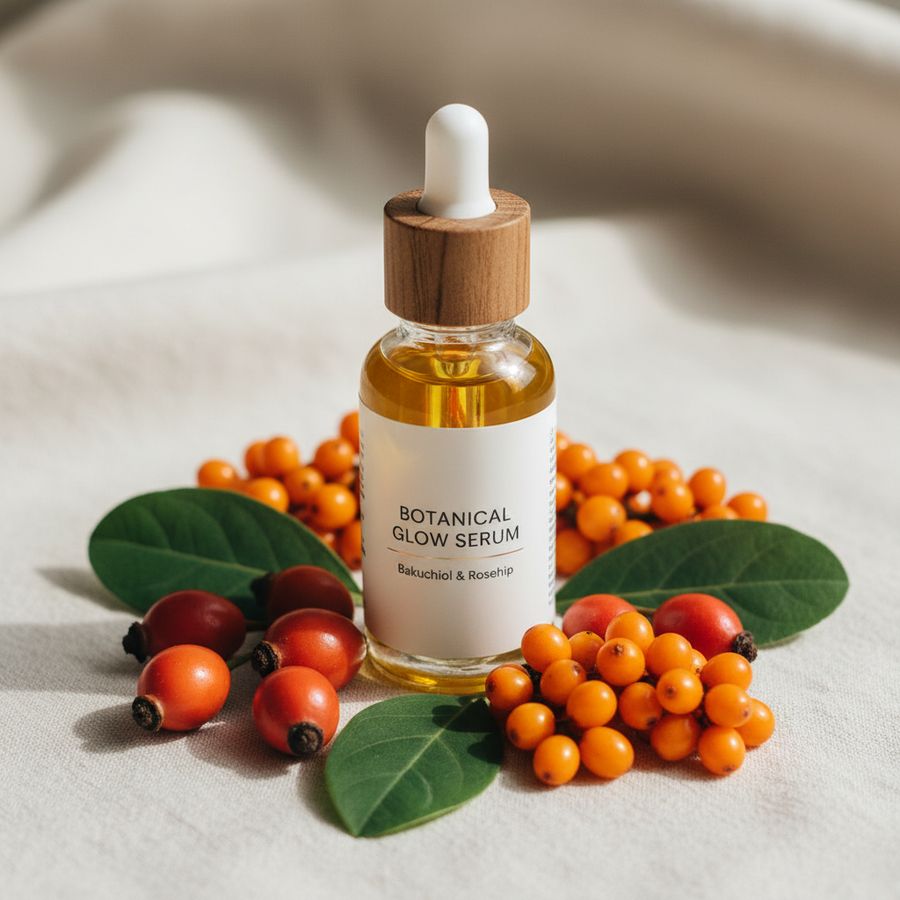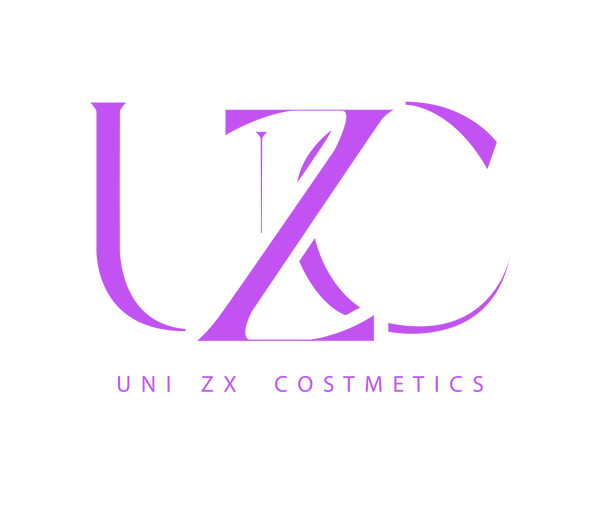
Benefits of natural retinol alternatives in skincare
Overview
Natural retinol alternatives have emerged as a powerful trend in the world of natural skincare, offering a gentler yet effective option for those seeking the benefits of retinol without the harsh side effects. Retinol is widely celebrated for its anti-aging properties, including reducing fine lines, improving skin texture, and promoting collagen production. However, it can sometimes cause irritation, redness, and dryness, especially for individuals with sensitive skin. This has driven interest in more skin-friendly, plant-based alternatives that deliver similar results.
As consumers become more conscious of ingredient safety and environmental impact, the demand for skincare ingredients derived from natural sources continues to grow. Natural retinol alternatives are often rich in antioxidants and vitamins that not only combat signs of aging but also support overall skin health. These alternatives fit perfectly into a holistic approach to skincare, emphasizing sustainability, cruelty-free formulations, and vegan ingredients.
In this article, we will explore what retinol alternatives are, how they compare to traditional retinol, their suitability for various skin types, and key natural ingredients to look for. We will also discuss how to incorporate these alternatives into your daily routine to achieve radiant, youthful skin without compromising sensitivity or natural balance.

What are retinol alternatives
Retinol alternatives refer to ingredients that mimic the effects of retinol but are derived from natural sources or formulated to be less irritating. Unlike synthetic retinol, these alternatives often come from botanical extracts, fruit acids, and vitamins that encourage cell turnover, boost collagen, and improve skin texture gently.
Some of the most popular natural retinol alternatives include bakuchiol, a plant-based compound extracted from the babchi plant, and natural fruit-derived ingredients like rosehip oil, which contains natural retinoids. Other alternatives employ gentle exfoliants like alpha hydroxy acids (AHAs) such as glycolic acid, derived from sugar cane, that help slough away dead skin cells and promote regeneration.
These alternatives offer a multitude of benefits:
- Reduced irritation: They are typically less likely to cause redness or peeling, making them ideal for sensitive or reactive skin.
- Antioxidant support: Many alternatives provide antioxidant protection that helps shield skin from environmental stressors.
- Compatibility with natural skincare: They align well with vegan, cruelty-free, and sustainable formulations.
“Natural retinol alternatives allow you to experience the rejuvenating effects of retinol while nurturing your skin with gentler, plant-powered ingredients.”
How they compare to retinol
When comparing retinol alternatives to traditional retinol, it’s important to understand both their similarities and differences. Retinol, a derivative of vitamin A, is a highly effective ingredient clinically proven to stimulate collagen production and accelerate skin cell turnover. However, its potency can lead to side effects like dryness, irritation, and photosensitivity.
Natural retinol alternatives offer a more balanced approach. For example, bakuchiol has been shown in studies to provide comparable anti-aging benefits to retinol, including reducing wrinkles and improving skin elasticity, without the common irritation. This makes it a preferred choice for those with sensitive skin or those new to retinoid use.
While retinol often requires a careful introduction and sun protection due to increased photosensitivity, many natural alternatives are more forgiving in this regard, allowing for daytime use and less risk of adverse reactions. However, the trade-off may be a slightly slower or more subtle effect compared to retinol’s potent action.
In summary, retinol alternatives:
- Provide effective anti-aging benefits with reduced irritation risks.
- Are generally safer for sensitive or reactive skin types.
- Support a holistic, natural skincare regimen without compromising results.
“Choosing between retinol and its natural alternatives depends on your skin’s tolerance, sensitivity, and your commitment to a consistent skincare routine.”
Suitable skin types
One of the most significant advantages of retinol alternatives is their suitability for a broader range of skin types, especially for those who struggle with irritation from traditional retinol. Sensitive skin, which can react negatively to strong active ingredients, often benefits from the gentler nature of natural alternatives.
People with dry, rosacea-prone, or aging skin find natural alternatives nourishing and less likely to exacerbate inflammation or dryness. Because these ingredients often include moisturizing and antioxidant-rich compounds, they help maintain the skin barrier while delivering rejuvenating effects.
Combination and normal skin types can also incorporate retinol alternatives as a gentle way to achieve anti-aging benefits without risking over-drying or irritation. For acne-prone skin, some natural alternatives like bakuchiol can help regulate excess oil and reduce breakouts while improving texture.
Individuals who should consider natural retinol alternatives include:
- Those with sensitive skin prone to redness or irritation.
- People new to retinoid products seeking a gentle introduction.
- Anyone looking for vegan, cruelty-free, and natural skincare options.
- Individuals with skin conditions such as rosacea or eczema where stronger retinoids may worsen symptoms.
“Natural retinol alternatives unlock anti-aging skincare benefits for all skin types, particularly those who need a gentle yet effective approach.”
Key natural ingredients
Understanding the key natural ingredients behind retinol alternatives helps in making informed choices when selecting skincare products. Below are some of the most effective and widely used natural ingredients with retinol-like benefits:
- Bakuchiol: Derived from the seeds and leaves of the Psoralea corylifolia plant, bakuchiol is celebrated for its anti-aging, anti-inflammatory, and antioxidant properties. It promotes collagen synthesis and improves skin tone without irritation.
- Rosehip Oil: Rich in natural retinoids, vitamin C, and essential fatty acids, rosehip oil supports skin regeneration, hydration, and brightening.
- Vitamin C: A potent antioxidant, vitamin C protects against free radical damage, boosts collagen, and enhances skin radiance.
- Alpha Hydroxy Acids (AHAs): Natural AHAs like glycolic acid exfoliate dead skin cells, promote cell turnover, and improve texture and brightness.
- Sea Buckthorn Oil: Contains beta-carotene and essential fatty acids that support skin repair and rejuvenation.
These ingredients often appear in natural skincare products designed for their gentle yet effective anti-aging benefits. When combined, they create synergistic effects that nurture the skin while addressing the common signs of aging.
“Choosing products with these natural ingredients ensures a balanced, skin-friendly approach to achieving youthful, radiant skin.”

Incorporating in routine
Integrating natural retinol alternatives into your skincare routine can be both simple and rewarding. Because these ingredients tend to be gentle, they can often be used more frequently and in combination with other active compounds.
Here are some tips to incorporate retinol alternatives effectively:
- Start slow: Even though natural alternatives are less irritating, begin with a few times a week to allow your skin to adjust.
- Use at night: Many retinol alternatives work best when applied in the evening, allowing skin to repair overnight.
- Moisturize well: Follow with a nourishing moisturizer to support the skin barrier and hydration.
- Sun protection: Always apply sunscreen during the day to protect your skin as it renews.
- Combine wisely: Pair with complementary ingredients like hyaluronic acid or niacinamide for enhanced hydration and soothing effects.
Many natural skincare brands offer serums and creams formulated with these retinol alternatives, such as Natural Retinol-Alternative Oil Serum, which can be seamlessly added to your routine for visible results.
“Consistency is key when using natural retinol alternatives; gentle daily care yields long-term skin rejuvenation without the harsh side effects.”
Conclusion
Natural retinol alternatives represent a harmonious blend of science and nature, offering effective anti-aging benefits while prioritizing skin comfort and health. These alternatives are especially valuable for individuals with sensitive skin or those seeking a more natural, vegan, and cruelty-free approach to skincare.
By understanding the unique properties of ingredients like bakuchiol, rosehip oil, and natural AHAs, you can tailor your routine to nurture and revitalize your skin gently. The reduced risk of irritation and enhanced compatibility with daily use make retinol alternatives a smart choice for maintaining youthful, radiant skin.
Embracing natural retinol alternatives not only supports your skin's beauty but also aligns with ethical values, making your skincare routine both effective and conscientious.
